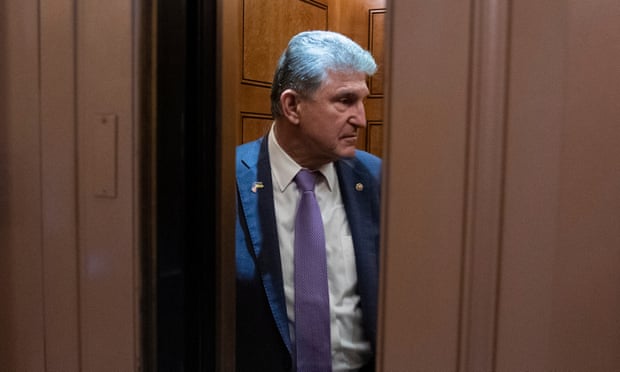
The Rev. T. Anthony Spearman, then-president of the North Carolina NAACP, crumples up a mailer which tells voters that IDs are needed in the upcoming 2020 election during a news conference outside the Legislative Building in Raleigh, N.C., on Dec. 27, 2019. Spearman, a civil rights advocate and former president of the N.C., branch of the NAACP who also served as president of the N.C. Council of Churches, has been found dead, his attorney said Wednesday, July 20, 2022.
(Ethan Hyman/The News & Observer via AP)
Wed, July 20, 2022
The Rev. T. Anthony Spearman, a civil rights advocate and former president of the North Carolina branch of the NAACP who also served as president of the N.C. Council of Churches, has been found dead, authorities said Wednesday.
Spearman, 71, was found in his home on Tuesday, the Guilford County Sheriff's Office said in a news release. The release indicated that either family or friends found him, but did not provide any further details.
The death was confirmed earlier in the day by Mark Cummings, a Greensboro attorney who said he was representing Spearman. Cummings declined to provide additional details about the death and did not say what he was representing Spearman for.
“In the mold of Dr. King, he truly was a drum major for justice,” Cummings said. “He saw the good in everybody in every situation, even those of his detractors, even those who would criticize him. He always found a way to see the best in them.”
Cummings said he would call on state officials to assist local law enforcement in an investigation.
Spearman's family issued a statement calling him “a man of strong conviction who loved his family with every ounce of his being.” A family member didn't respond on Wednesday to a request for additional comment.
Spearman was elected as North Carolina NAACP president in 2017 and served one four-year term.
Bishop William J. Barber, who preceded Spearman as the North Carolina NAACP president and who is now president of the national, not-for-profit organization Repairers of the Breach, said in a statement, “I have lost a true brother in the struggle.”
“We have lost a scholar, a preacher, a voting rights defender, an advocate for prison reform and for the wrongfully accused and a stalwart soldier in the cause of love and justice for all humankind,” Barber said. “This great man’s efforts and commitment should be cherished.”
Spearman was suspended from the NAACP by the organization's national leadership about five months ago, The News & Observer reported, quoting NAACP President and CEO Derrick Johnson as saying that Spearman repeatedly refused to turn over N.C. NAACP property — which included meeting minutes and financial records — after he lost his bid for reelection in 2021.
Spearman filed a lawsuit in June against several state and national NAACP officials, accusing them of defamation and conspiracy to remove him from the presidency, WRAL reported. He alleged that his support of a woman who said she was sexually harassed by a member of the state conference led to the effort to have him ousted and made him a target of retribution, the story said.
The man who was accused, the Rev. Curtis Gatewood, has in the past denied any kind of sexual assault or intentional sexual harassment, although he told The Associated Press in a 2019 statement that he didn't “deny the feelings of my accusers.”
In a Facebook post on Tuesday, Gatewood added, “I have no other comments regarding the specifics of the matter at the time and believe enough has been said, documented, and presented for God to allow even a blind man to ‘see’ if seeing is truly desired."
Gatewood said in a separate post on Tuesday that while he and Spearman disagreed on issues involving the state NAACP, “I loved the brother.”
“I wanted the news of his demise to be untrue,” Gatewood wrote. “I forgave him.”
Wed, July 20, 2022
The Rev. T. Anthony Spearman, a civil rights advocate and former president of the North Carolina branch of the NAACP who also served as president of the N.C. Council of Churches, has been found dead, authorities said Wednesday.
Spearman, 71, was found in his home on Tuesday, the Guilford County Sheriff's Office said in a news release. The release indicated that either family or friends found him, but did not provide any further details.
The death was confirmed earlier in the day by Mark Cummings, a Greensboro attorney who said he was representing Spearman. Cummings declined to provide additional details about the death and did not say what he was representing Spearman for.
“In the mold of Dr. King, he truly was a drum major for justice,” Cummings said. “He saw the good in everybody in every situation, even those of his detractors, even those who would criticize him. He always found a way to see the best in them.”
Cummings said he would call on state officials to assist local law enforcement in an investigation.
Spearman's family issued a statement calling him “a man of strong conviction who loved his family with every ounce of his being.” A family member didn't respond on Wednesday to a request for additional comment.
Spearman was elected as North Carolina NAACP president in 2017 and served one four-year term.
Bishop William J. Barber, who preceded Spearman as the North Carolina NAACP president and who is now president of the national, not-for-profit organization Repairers of the Breach, said in a statement, “I have lost a true brother in the struggle.”
“We have lost a scholar, a preacher, a voting rights defender, an advocate for prison reform and for the wrongfully accused and a stalwart soldier in the cause of love and justice for all humankind,” Barber said. “This great man’s efforts and commitment should be cherished.”
Spearman was suspended from the NAACP by the organization's national leadership about five months ago, The News & Observer reported, quoting NAACP President and CEO Derrick Johnson as saying that Spearman repeatedly refused to turn over N.C. NAACP property — which included meeting minutes and financial records — after he lost his bid for reelection in 2021.
Spearman filed a lawsuit in June against several state and national NAACP officials, accusing them of defamation and conspiracy to remove him from the presidency, WRAL reported. He alleged that his support of a woman who said she was sexually harassed by a member of the state conference led to the effort to have him ousted and made him a target of retribution, the story said.
The man who was accused, the Rev. Curtis Gatewood, has in the past denied any kind of sexual assault or intentional sexual harassment, although he told The Associated Press in a 2019 statement that he didn't “deny the feelings of my accusers.”
In a Facebook post on Tuesday, Gatewood added, “I have no other comments regarding the specifics of the matter at the time and believe enough has been said, documented, and presented for God to allow even a blind man to ‘see’ if seeing is truly desired."
Gatewood said in a separate post on Tuesday that while he and Spearman disagreed on issues involving the state NAACP, “I loved the brother.”
“I wanted the news of his demise to be untrue,” Gatewood wrote. “I forgave him.”








